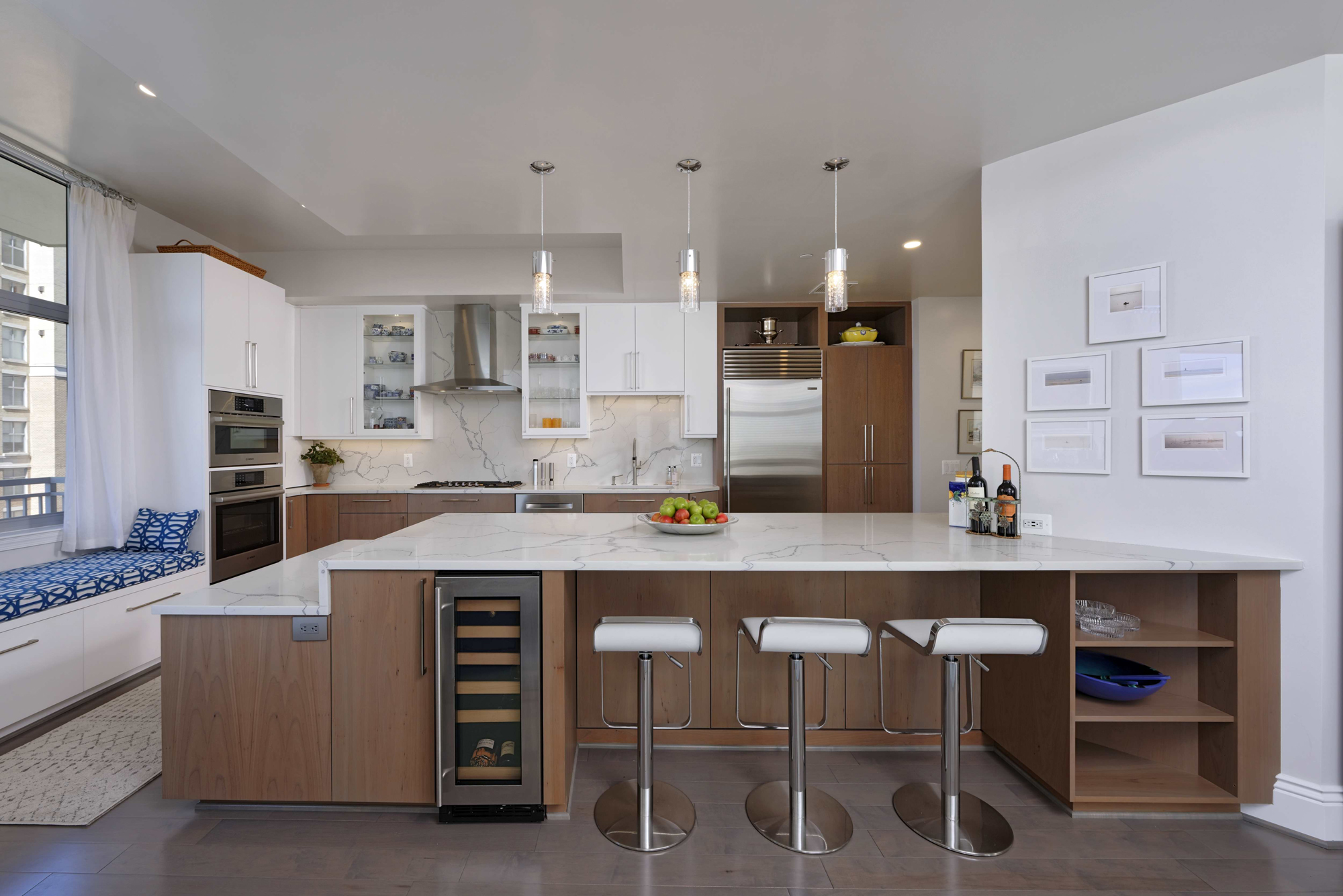As the population’s ecological awareness grows, the request for eco-friendly and sustainable alternatives for home upgrades is also increasing. While remodeling your home, the kitchen is one of the most urgent regions to consider for harmless to the ecosystem choices, as it is the core of the family. In this article, Fort Worth Kitchen Remodeling Company will examine few eco-accommodating and practical decisions for rebuilding your kitchen.
- Utilization of sustainable materials: It is vital to consider the materials you use when refurbishing your kitchen. Picking economical materials like bamboo, recovered wood, or reused glass can essentially diminish your home’s carbon impression.
- Energy-efficient appliances: Investing in energy-efficient appliances can lessen your energy consumption and decrease your monthly expenses. Look for appliances with the Energy Star label as they are certified to be energy-efficient and environmentally friendly.
- Light-emanating diode (Drove) lighting: Driven lighting is a fantastic choice for kitchen renovating on the grounds that it consumes less energy than conventional lighting and has a significantly longer life expectancy. Moreover, it delivers less intensity, making it a more secure choice.
- Low-Flow faucets: By introducing low-stream fixtures in your kitchen, you can altogether diminish your water utilization. These spigots are intended to utilize less water without compromising execution.

- Recycled countertops: Recycled countertops are a fantastic eco-friendly alternative for your kitchen. They are created from recycled materials such as glass or paper and look just as good as traditional countertops.
- Non-toxic paint: When repainting your kitchen, choose non-toxic paint. Conventional paint incorporates unstable natural mixtures (VOCs) that can be hindering to the climate and your wellbeing.
- Energy-efficient windows: Fort Worth Kitchen Remodeling Company Installing energy-efficient windows can reduce your energy consumption and lower your monthly expenses. Search for windows with a low U-factor and a high Solar Heat Gain Coefficient (SHGC).
- Natural ventilation: Normal ventilation is a phenomenal method for lessening your dependence on cooling and further develops indoor air quality. It entails designing your kitchen to enable cross-ventilation and natural air flow.
- Smart home technology: Using smart home technology in your kitchen can assist you in monitoring and regulating your energy consumption more efficiently. It allows you to automate your appliances and lighting, decreasing waste and saving energy.
There are many eco-friendly and sustainable alternatives for remodeling your kitchen.




